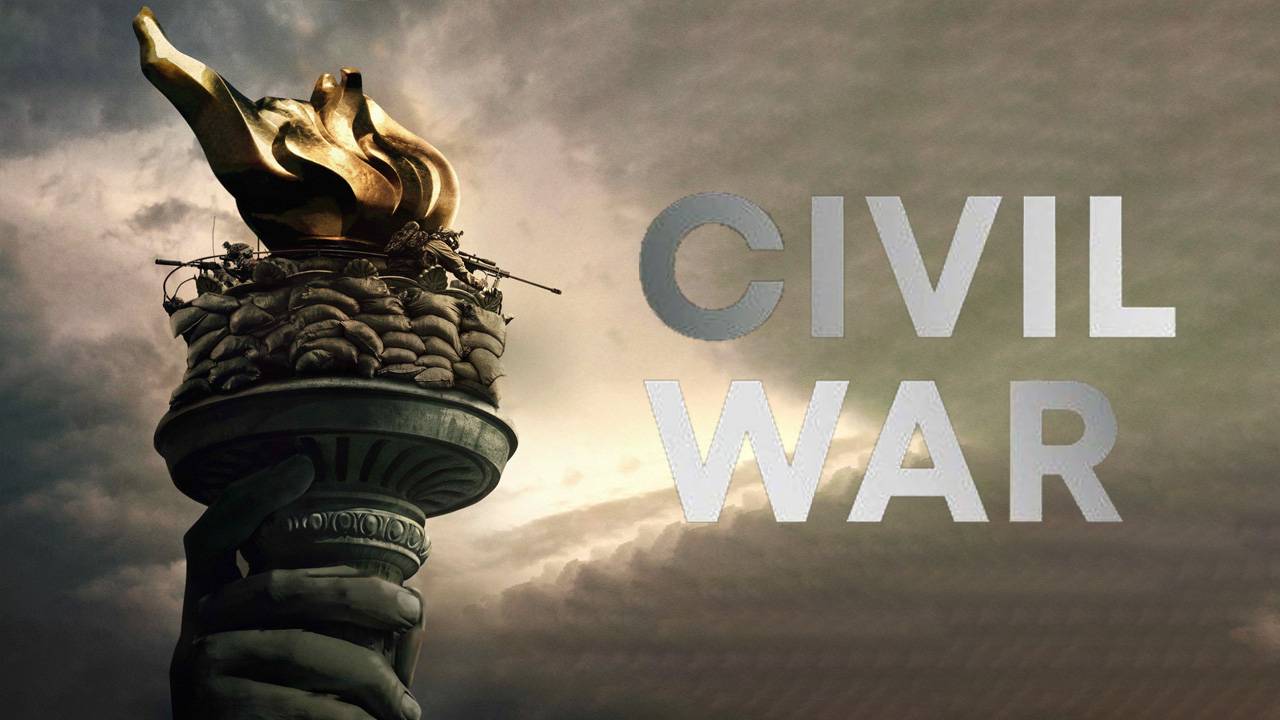We’re not so sure you have to have a doctorate in political or social sciences to understand the background of Alex Garland’s dystopian feature film Civil War and why this battle started.
It’s been brewing for awhile in the country as the political divide between a new breed of GOP that doesn’t really adhere to classic Reaganism and an undefinable type of Democratic Party which is far off from the likes of Kennedy or FDR has widened.
While you know something has happened to make the country go afoul of its roots, you have to listen carefully to know what two main atrocities the authoritarian president played by Nick Offerman committed against his own government and his own people are in the very intense and graphically violent movie, which is now playing at RCE Theaters in Roanoke Rapids.
There is no real setup to the upheaval in this movie.
Unlike Hulu’s very gripping version of The Handmaid’s Tale, which gives a very exhaustive explanation of how evangelicals came into power through misinterpretation of scripture, in Civil War you have to listen for it.
It is a film worth seeing and one you leave believing that, yes, it could very well happen here, especially if an egomaniac, vulgar and narcissistic person who abhors the Constitution and doesn’t abide by the Rule of Law should ascend to the White House.
Is it likely to happen? That’s a question we can’t answer but we definitely believe in this climate where it seems you have to be one or the other — the right or the left — there is a small itch that if you keep scratching could bleed and fester.
Unlike in a New Yorker review of the film, we don’t necessarily believe Garland had to offer us an explanation of why this war broke out or really offer us any explanations on how to prevent such a calamity.
If you follow current events, you know why, you know there’s that itch that you want to furiously scratch.
The New Yorker’s argument that Garland played both sides is allowable but those who understand the current climate know that only a president who thinks of himself and is respected by the likes of a dangerous egotist such as Putin would commit such atrocities against his own people.
The movie follows a team of Reuters journalists on the road to a District of Columbia about to be taken siege by armies wanting to restore this country to its We the People roots.
It follows one particular presspool made up of the war-hardened photojournalist Lee Smith, played by Kirsten Dunst, who takes a very young aspiring photographer named Jesse Cullen under her wings in the aftermath of an intense street firefight before they and a journalist named Joel, who is intent on getting an interview with the president, and Smith’s mentor Sammy begin their trek to D.C.
Cullen, who shoots with a Nikon film camera and knows how to develop her film away from the darkroom, learns of the horrors of combat photography from her mentor Smith in scenes quite reminiscent of the opening salvos of the Normandy invasion in Saving Private Ryan and some of the more intense battle scenes in Full Metal Jacket. Through these experiences Jesse becomes just as battle-hardened as her mentor.
It is through the film’s dialogue that we learn D.C. is no place for journalists — “They shoot journalists on sight in D.C.”
We see the carnage on highways, the aftermath of bloody skirmishes, the people who become refugees, looters being tortured and even a Pleasantville kind of town where its residents seem oblivious to the conflict while armed militia keep watch over the municipality on rooftops.
We learn the unnamed president has ordered the summary executions of his enemies and the dumping of their bodies into mass graves. We learn that the troops loyal to what has become our treasonist government are very nationalistic and want to know what kind of Americans the encroaching journalists are when they discover the mass grave. Two are executed for giving the wrong answers.
In a world where in the past few years journalists have been vilified as enemies of the state, Civil War gives you a glimpse into the bravery and guts it takes for those in this profession to be on the frontlines.
Whether they are depicted in a film like this, whether they were in the Capitol building on January 6, 2021 when real treasonists staged a takeover supporting baseless claims of a stolen election or in the Ukraine, the Gaza or wherever there is fighting — we thank you.
While it was disappointing that we didn't get a better understanding of what “The Offerman Administration ” did to undermine our more perfect union and its people, the movie clearly shows pockets of America destroyed by his actions.
By our count we only see Offerman twice in the film — that’s at the beginning where he’s trying to hone a speech that he is right and the end of the war is at hand and then at the end. That’s probably as many times as we need to see him, especially for the destruction he has caused this nation in his three-term xenophobic fervor.
Like the Hulu version of The Handmaid’s Tale, Civil War is not set in the far-off future but in the very real present.
And yes, sadly, you leave this film believing that it could very well happen here, especially if an egomaniac, vulgar and narcissistic person who abhors the Constitution and doesn’t abide by the Rule of Law ascends to the White House — Editor





